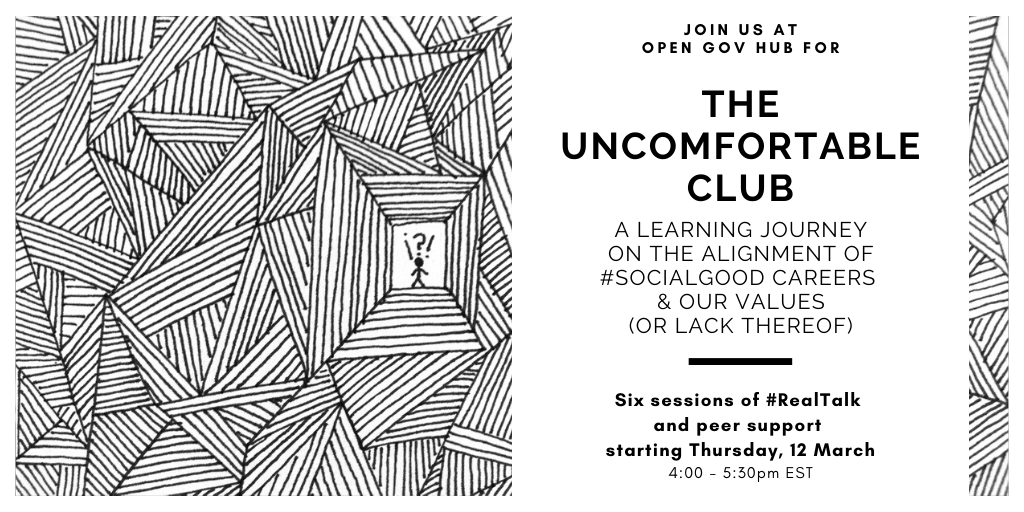I have been meeting with 10 people who are working in global development and philanthropy in Washington, D.C. over the last 3 months. The name of our group is “The Uncomfortable Club,” and they are why I have to be hopeful about the changes ahead for our sector:

The premise of our group is that there is no need to be silent for anyone else’s comfort if we are going to democratize and decolonize aid systems rooted in imperialism and global inequality. The journey together was focused on the skills needed to speak up – recognizing this is tied to vulnerability and identity.
Over the three months, we built and supported each other’s political courage, cultural humility, and community/ethic of care skills.
We acknowledged that cutting ourselves off from the ambiguity, disappointment, and discomfort inherent in social change work is what fuels burnout, isolation, and complicity in unjust systems.
We focused on what is needed to avoid replication of the harm that has been done in our sector. We began to heal the moral injury enacted by the sector.
We reignited our creative thinking.
We got honest about how our “dreams” of change rarely match our spheres of influence.
Yes, we introduced analytical frameworks of the systems outside of global development writ large like white supremacy that impact how our work is structured, organized, and carried out. But more importantly we practiced being braver together to have the tough conversations in real life.
Discomfort alerts us to an injustice that is occurring or has occurred. We can trust our discomfort with harm as it’s happening in our sector too (in big and small ways). Pretending to be ok when we’re not, benefits no one.
And we don’t always have to be polite or professional. We don’t have to follow rules/work within parameters of unjust systems to dismantle them. I learned from Nora Murad that pissing people off is needed too. We can’t always be perfectly acceptable. And it’s worth the risk.
For those of you speaking up for #BlackLivesMatter and to #EndWhiteSupremacy in the social good sector right now: Know that backlash or pushback may be evidence that your interruption of harm is making a dent.
You can trust your discomfort with the reactions of people in positional power as a clue that something indeed needed to be done.
And…the real gift of showing up in your own truth is that it gives others the permission to do the same. Take your discomfort in a given situation, and give it to the person(s) who could make the decisions to change it.
A moment of discomfort can yield a world of growth.
Risk. Recover. Learn. Grow. Repeat.

***
Related Posts
7 things you need to speak truth to power
Courage, resolve and togetherness: Opportunities to connect and learn with me
The only way to fight racism in our sector
4 ways toxic workplaces are harming the nonprofit sector
Serving with Cultural Humility


Pingback: LAUNCH: The ethics of studying Africa | Democracy in Africa